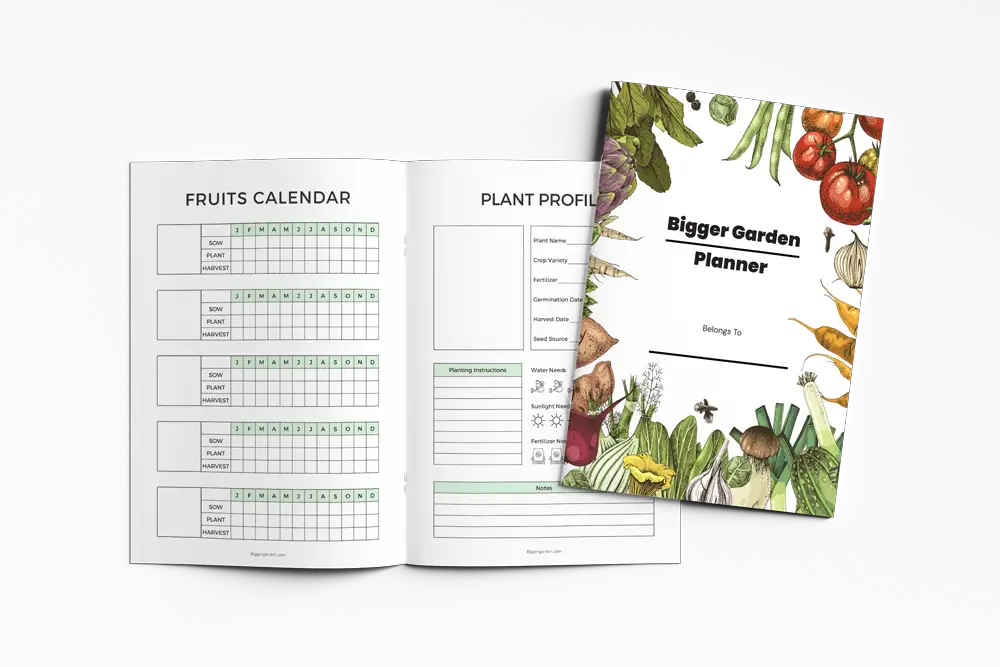11 Beautiful Flowers That Start with B + Growing Guide Charts

This post follows our research editorial guidelines.

This list of flowers beginning with B will bring brash blossoms and little buds to brighten balconies, and backyards alike. Blooms for butterflies and bees benefit the bugs while bringing bountiful features to your garden. You’ll begin to behold the beauty of lush vegetable beds while blowsy bulbs bring bonuses beyond the basics. Just being beside them is a break from boredom as I welcome these flowers into my garden.
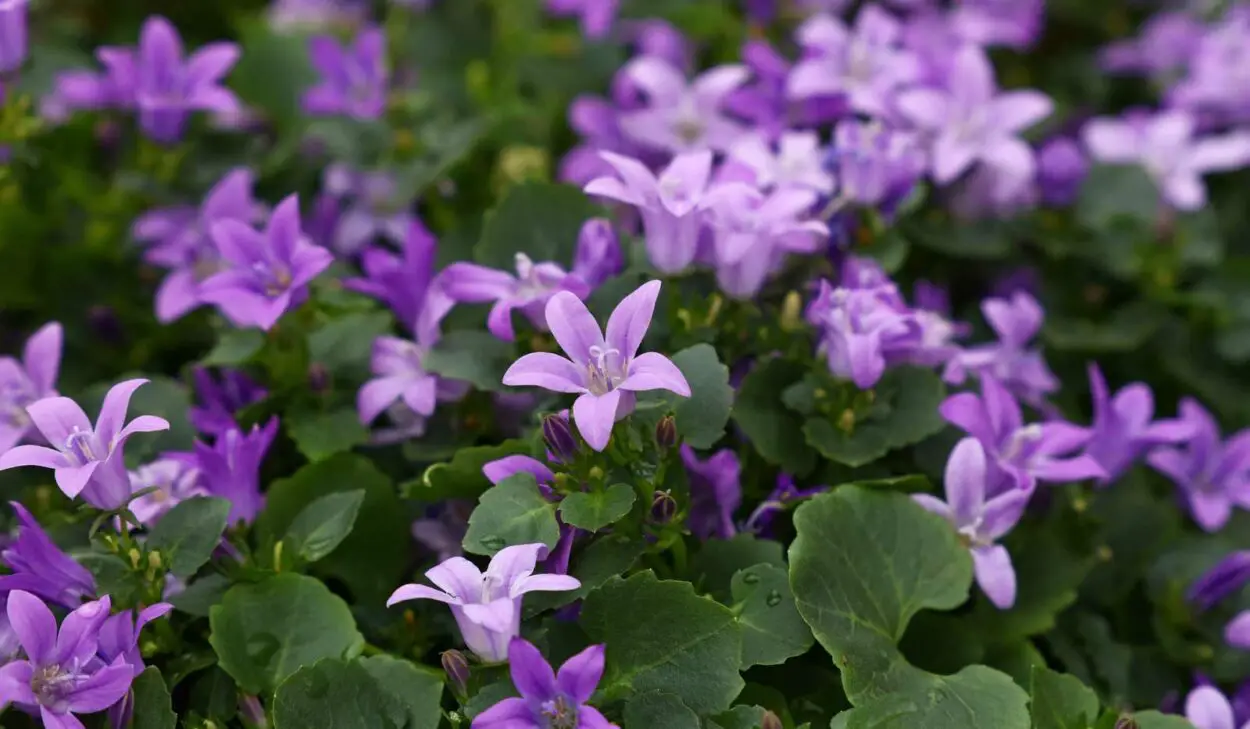
I’m bounding by the list of my most beloved blooming plants in alphabetical order, and behold, the letter b. Let’s begin!
Quickly Find Flowers That Start With B
1. Balloon flower (Platycodon grandiflorus “Astra Blue”)
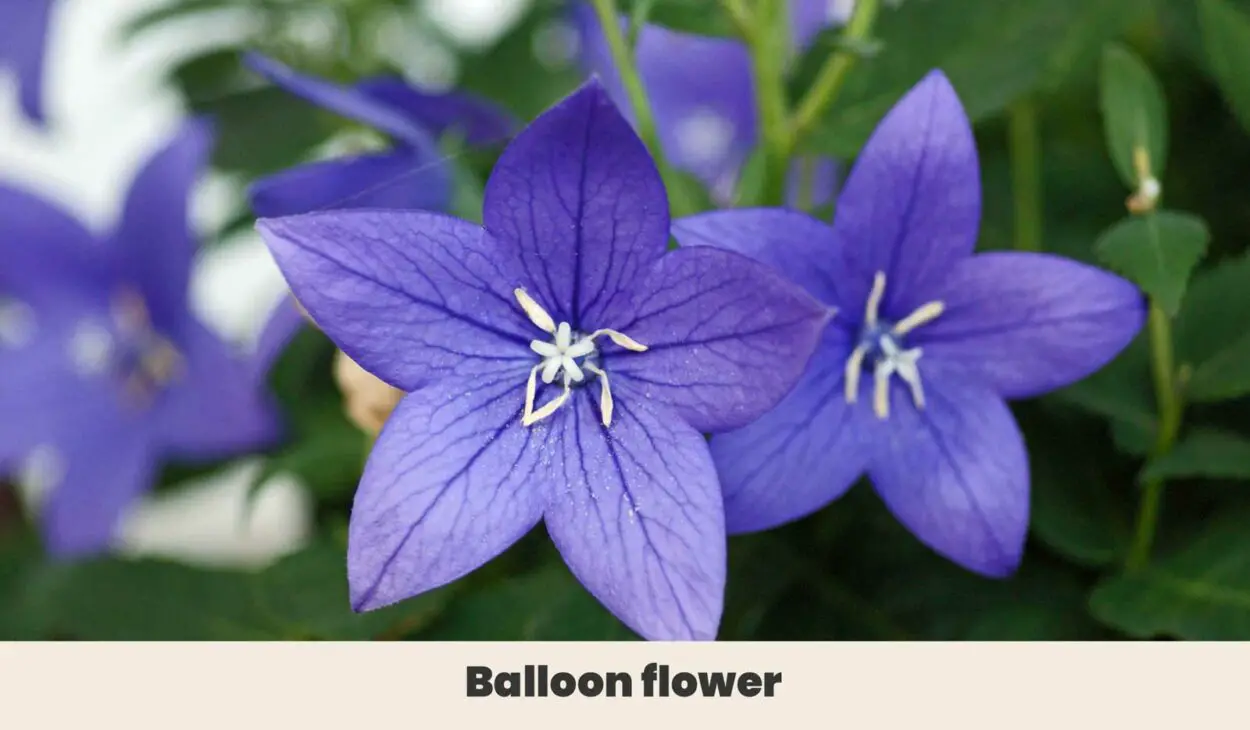
The pretty purple and mauve blooms of the balloon flower form round buds that swell and burst like their namesake party decoration. The buds form in an enticing round shape that pops open into the mature flower when tapped, which makes them popular with children. The Baloon flower has long been used in Chinese herbal practices, but for the pragmatic gardener, they make a gorgeous addition to rock gardens or as a border plant.
| Botanical Name: | Platycodon grandiflorus “Astra Blue” |
| Growth Rate: | Fast |
| Native Range: | East Asia and Russia |
| Hardiness Zones: | 3 to 8 |
| Soil Needs: | Well-draining, organically rich moist loams |
| Exposure: | Full sun to partial shade |
| Blooming Period: | Summer |
| Water needs: | Moderate |
2. Bee balm (Monarda “Gardenview Scarlet”)
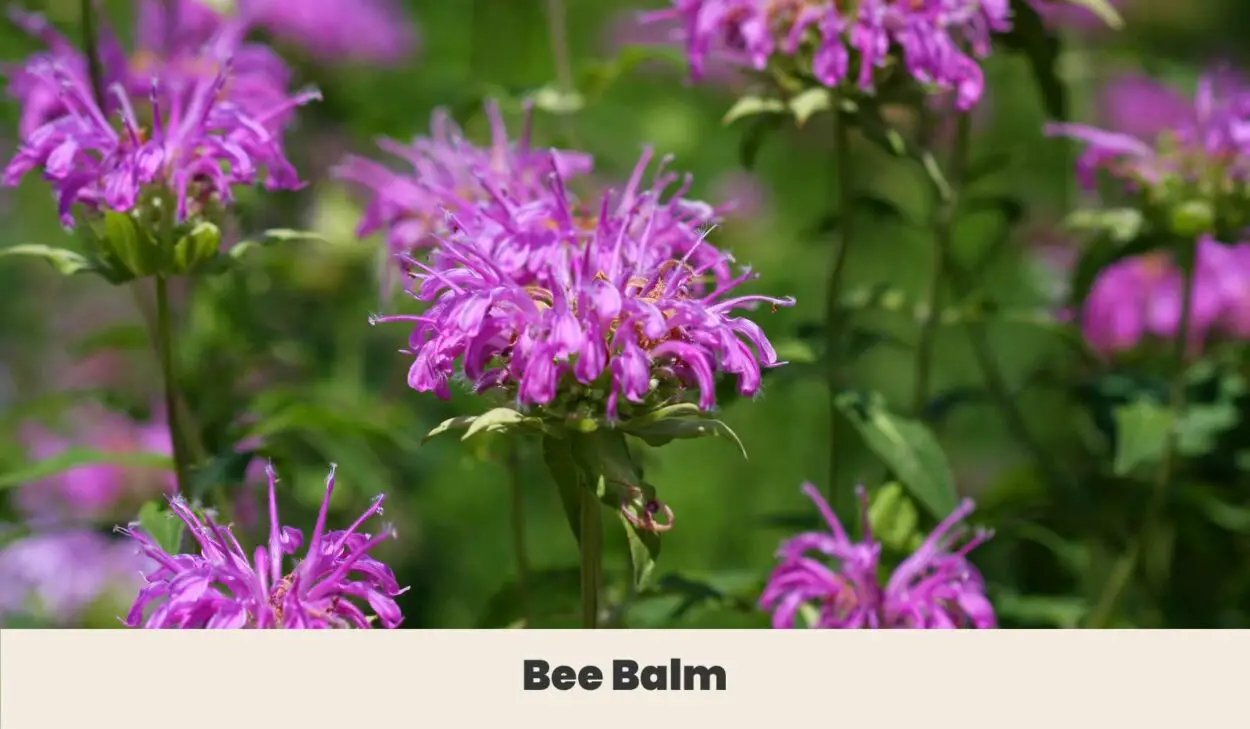
The fluffy, almost shaggy scarlet flowers of bee balm always put me in mind of a lion’s mane, ruff and rumpled. They captivate friendly pollinators and butterflies, but it’s hummingbirds who truly love bee balm the most. These bright beauties are an excellent addition to wildflower displays, and rain gardens, with a high tolerance for damp soils and shady corners.
| Botanical Name: | Monarda “Gardenview Scarlet” |
| Growth Rate: | Fast |
| Native Range: | North America |
| Hardiness Zones: | 4 to 9 |
| Soil Needs: | Organically rich, moist to wet soils |
| Exposure: | Full sun to partial shade |
| Blooming Period: | Summer |
| Water needs: | Moderate to high |
3. Bellflower (Campanula latifolia)
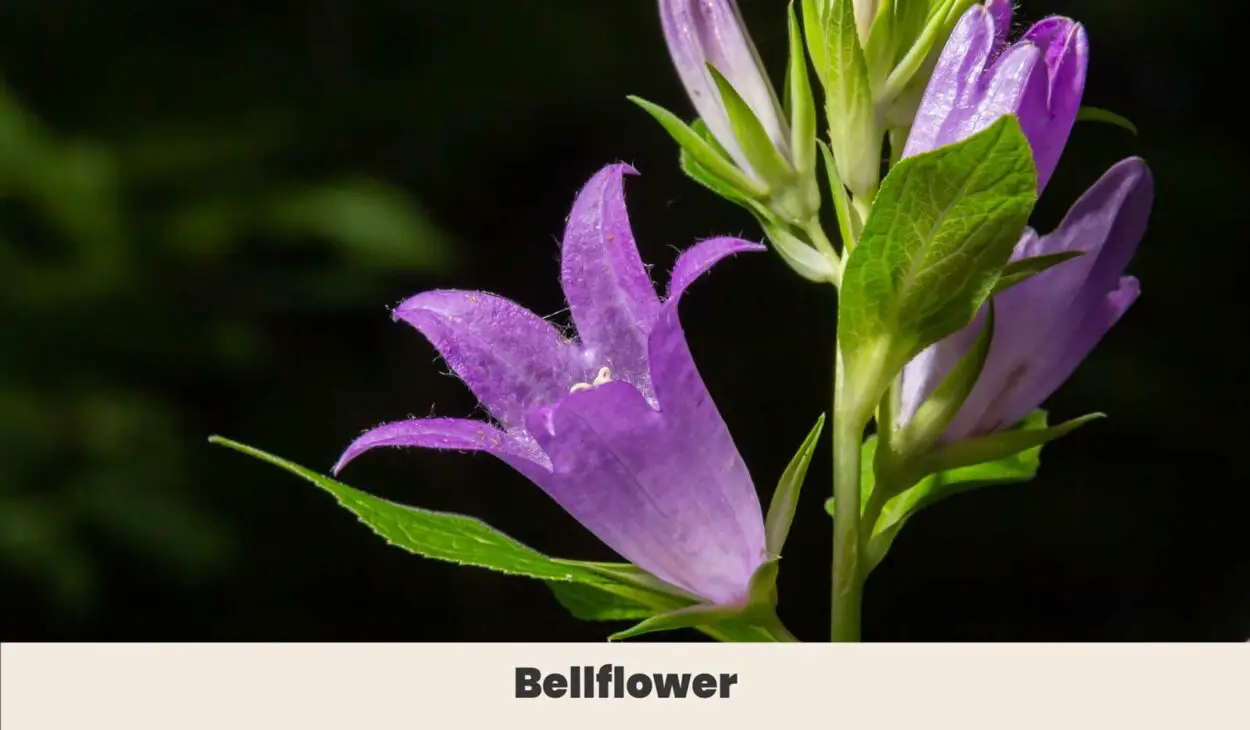
Also known as the giant bellflower, this flashy herb produces tall flowering spires of up to four feet, covered in large purple bell-shaped blooms. It’s a vigorous grower that self-seeds readily and spreads underground via fleshy rhizomes, so be ready for an ever-increasing spread of cheerful flowers each summer. In some regions it’s considered invasive, so check before you plant.
| Botanical Name: | Campanula latifolia |
| Growth Rate: | Fast |
| Native Range: | Europe, Western Asia |
| Hardiness Zones: | 4 to 8 |
| Soil Needs: | Most soil types providing moisture needs are met |
| Exposure: | Full sun to partial shade |
| Blooming Period: | Summer |
| Water needs: | Moderate |
4. Bird’s foot violet (Viola pedata)
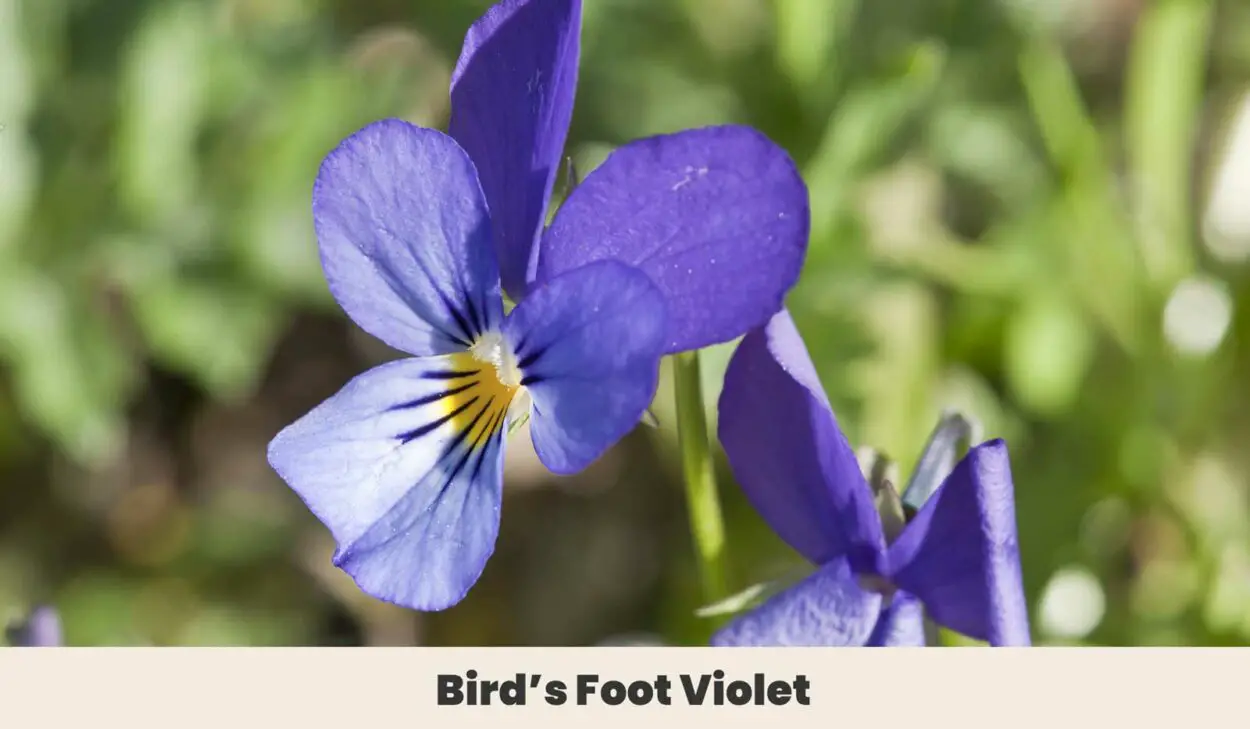
A dainty, charming American native, the bird’s foot violet is a purple clumping ground-cover with bright blooms that outshine its unremarkable foliage. The flowers have five petals in delicate shades of violet and mauve, with a bright golden heart, reminiscent of a bird’s foot. They’re a great choice for sandy wildflower gardens and are much sought after by pollinators and other beneficial insects.
| Botanical Name: | Viola pedata |
| Growth Rate: | Moderate |
| Native Range: | Eastern United States |
| Hardiness Zones: | 4a to 8b |
| Soil Needs: | Dry sandy or rocky soil |
| Exposure: | Full sun to partial shade |
| Blooming Period: | Spring to summer |
| Water needs: | Low |
5. Bird of Paradise (Strelitzia reginae)
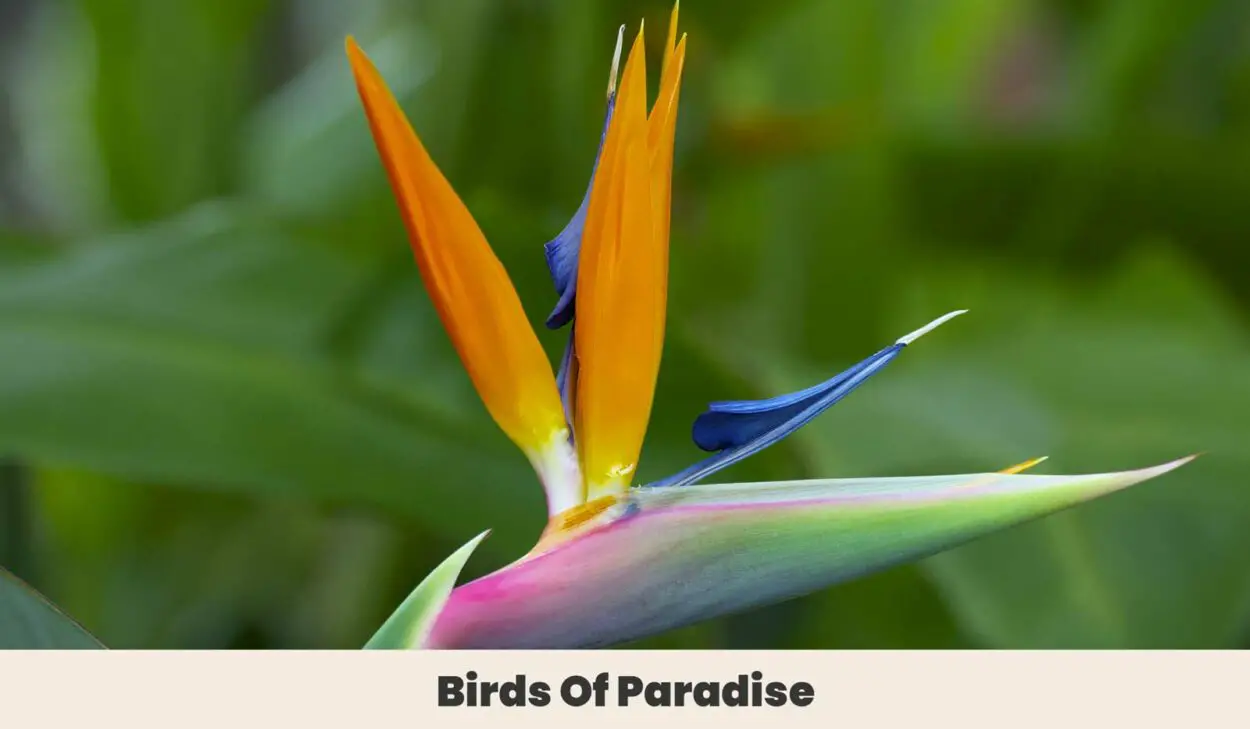
Big and brash, the bird of paradise lives up to its tropical name. It’s often grown for its massive, sail-like leaves, but the flowers are just as dramatic. They often reach four feet tall, with striking orange flowers and a pop of purple on a long sharp spathe that has a spiky punk-rock flair. If you’re in the colder parts of the north, don’t fear – they’ll grow quite happily as an indoor plant, though it’ll take a bit of effort to see flowers.
| Botanical Name: | Strelitzia reginae |
| Growth Rate: | Slow |
| Native Range: | South Africa |
| Hardiness Zones: | 10 to 11 |
| Soil Needs: | Moist but well-draining soils of all types |
| Exposure: | Full sun to partial shade |
| Blooming Period: | Spring to summer |
| Water needs: | Low, drought tolerant once established |
6. Begonia (Begonia tuberhybrida)
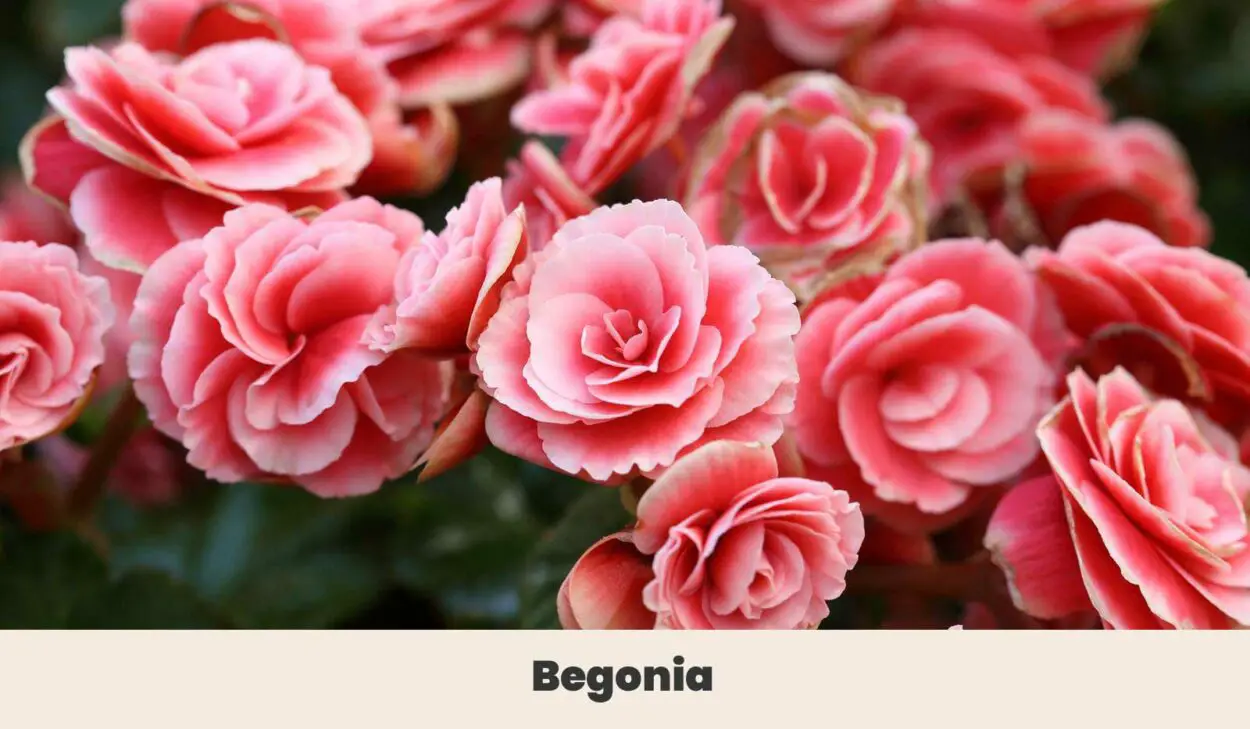
Begonias are having a moment right now, and none deserve their time in the spotlight more than the tuberous varieties. They have an old-world charm and produce gorgeous, multilayered blooms in a range of colors from reds and oranges down to yellows, pinks, and white.
Tuberous begonias are particularly good for containers and hanging baskets, where they can be moved to cool patios and even short spells indoors due to their low-light needs.
| Botanical Name: | Begonia tuberhybrida |
| Growth Rate: | Moderate |
| Native Range: | South America, southern Africa |
| Hardiness Zones: | 3 to 11 |
| Soil Needs: | All soil types provided moisture needs are met |
| Exposure: | Partial to full shade |
| Blooming Period: | Spring |
| Water needs: | Moderate |
7. Bleeding Hearts (Dicentra spp.)
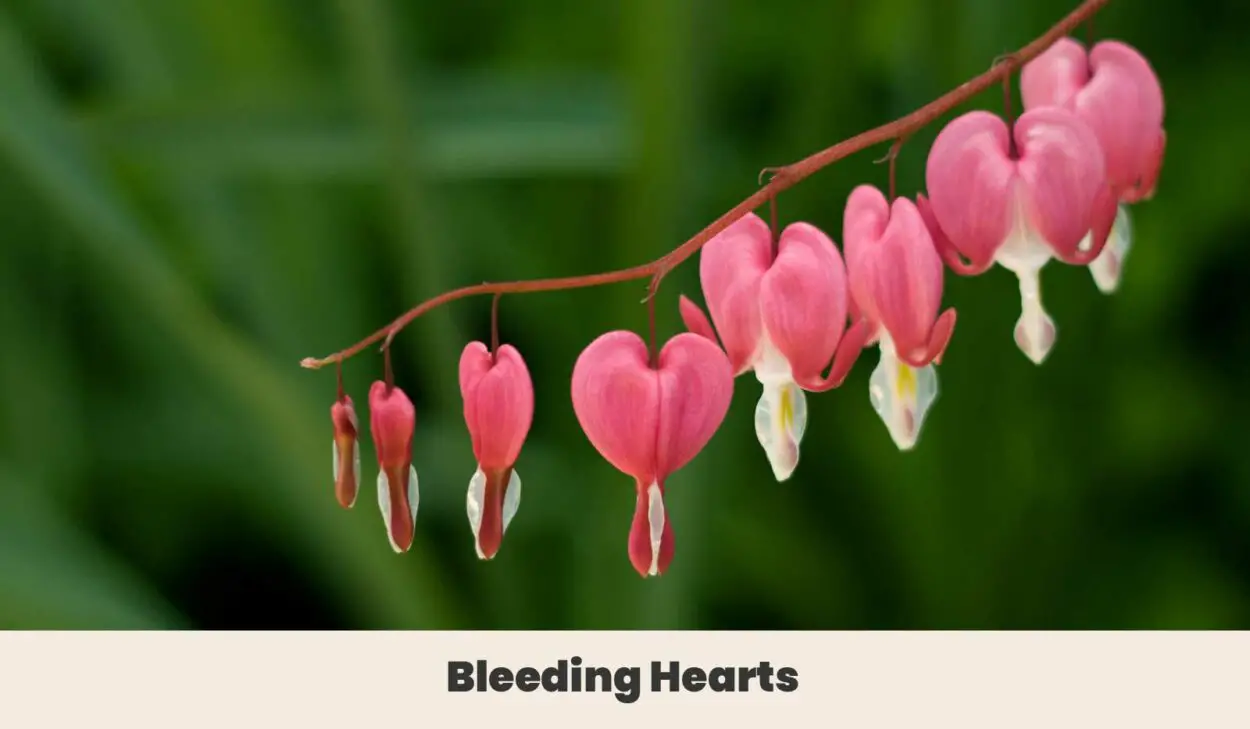
Bleeding hearts flower in elegant garlands, a string of heart shaped flowers in pink, purple and white. They speckle the deep shade with delicate fern-like leaves and abundant blooms. There are around twenty different varieties to pick from, making it easy to find one to suit your woodland gardens or shaded glens.
| Botanical Name: | Dicentra spp |
| Growth Rate: | Slow |
| Native Range: | Eastern Asia, North America |
| Hardiness Zones: | 2 to 8 |
| Soil Needs: | Organically rich, well draining soils of all types |
| Exposure: | Partial to deep shade |
| Blooming Period: | Late spring to summer |
| Water needs: | Moderate to high |
8. Baby’s Breath (Gypsophila)
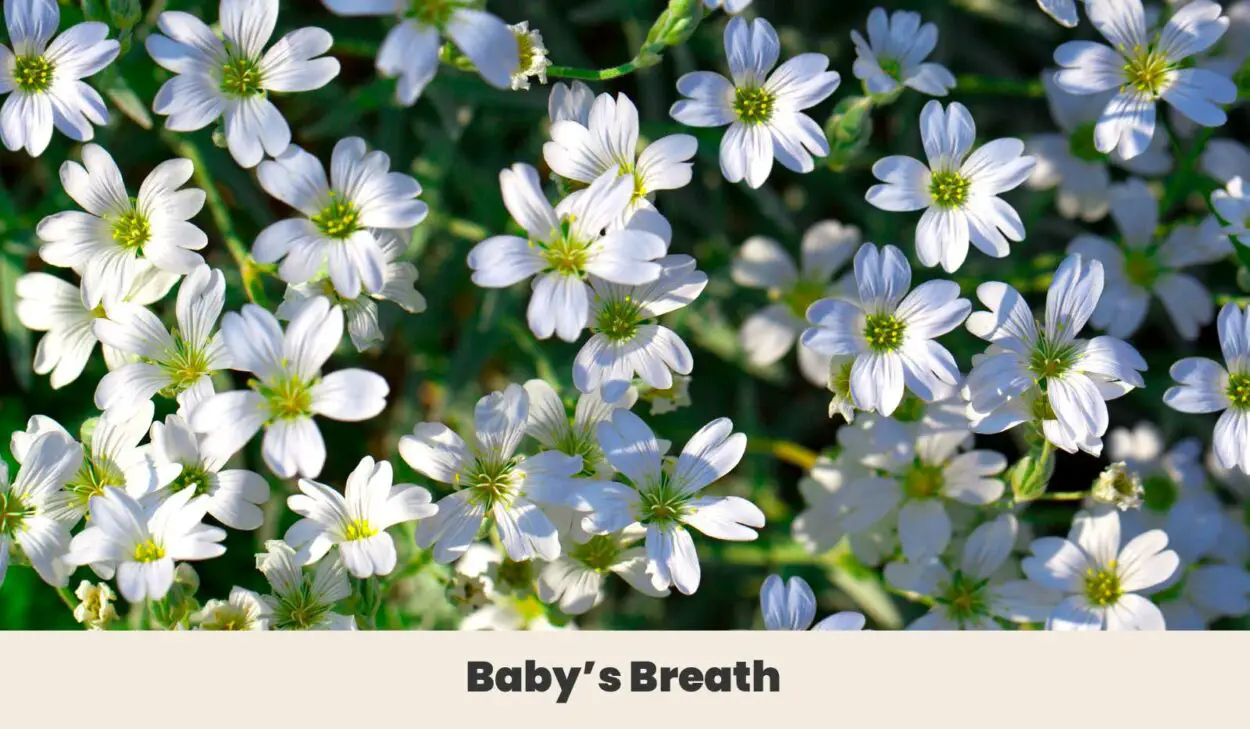
Baby’s breath is a floristry staple, but you needn’t make a trip to the store to get your fill. These delicate white blooms are easy to grow, thriving in dry soils that may not support other flowers. It’s such a vigorous grower that it often breaks out of garden beds and grows as a weed, so be mindful of where you plant it.
| Botanical Name: | Gypsophila |
| Growth Rate: | Fast |
| Native Range: | Eurasia |
| Hardiness Zones: | 3 to 9 |
| Soil Needs: | Dry sandy, rocky or loamy soils |
| Exposure: | Full shun |
| Blooming Period: | Summer to fall |
| Water needs: | Low |
9. Bachelor’s Button (Centaurea cyanus)
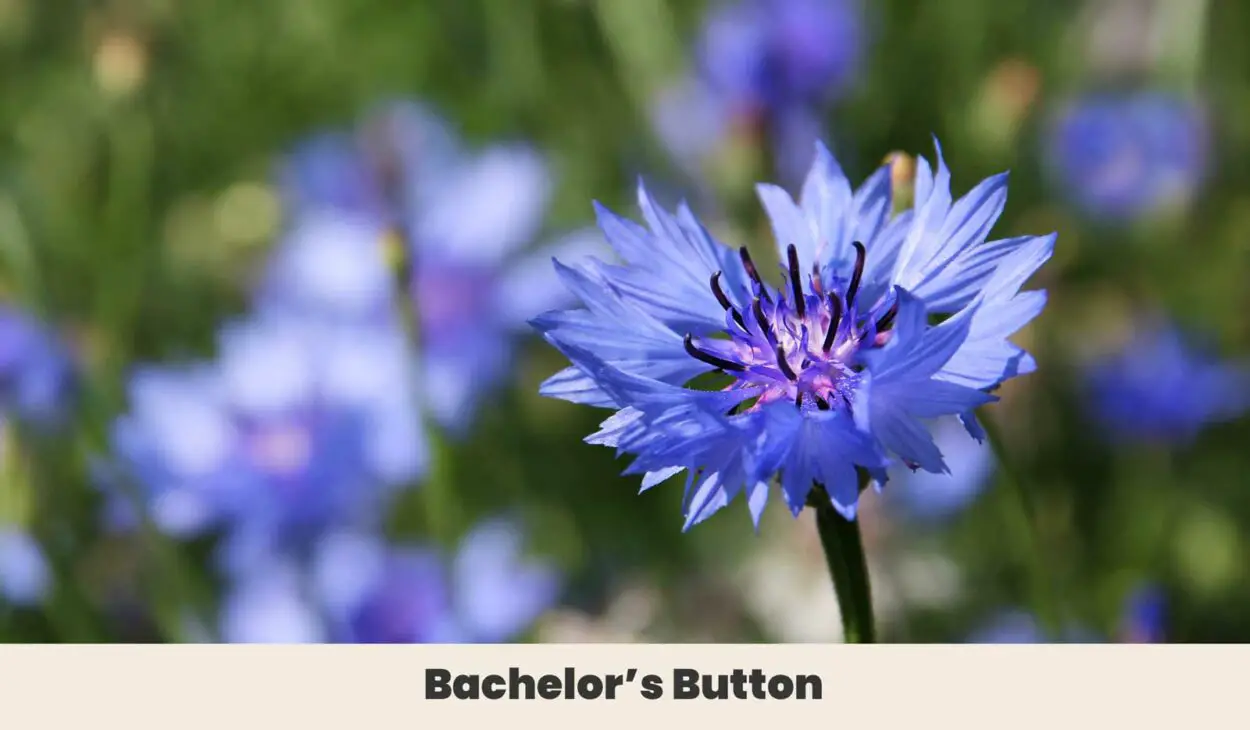
More commonly known as cornflowers, these bright blue beauties are hardy, easy-to-grow wildflowers that are an ideal addition to butterfly gardens and wildflower beds.
They happily put up with just about any rough conditions, from rocky soil to drought, and still produce their characteristic circular flowers. While the classic bachelor’s button is bright technicolor blue, domestic varieties are also available in pink, red, and white.
| Botanical Name: | Centaurea cyanus |
| Growth Rate: | Fast |
| Native Range: | Europe |
| Hardiness Zones: | 2 to 11 |
| Soil Needs: | All types |
| Exposure: | Full sun to partial shade |
| Blooming Period: | Summer |
| Water needs: | Low to moderate |
10. Black-Eyed Susan (Rudbeckia hirta)
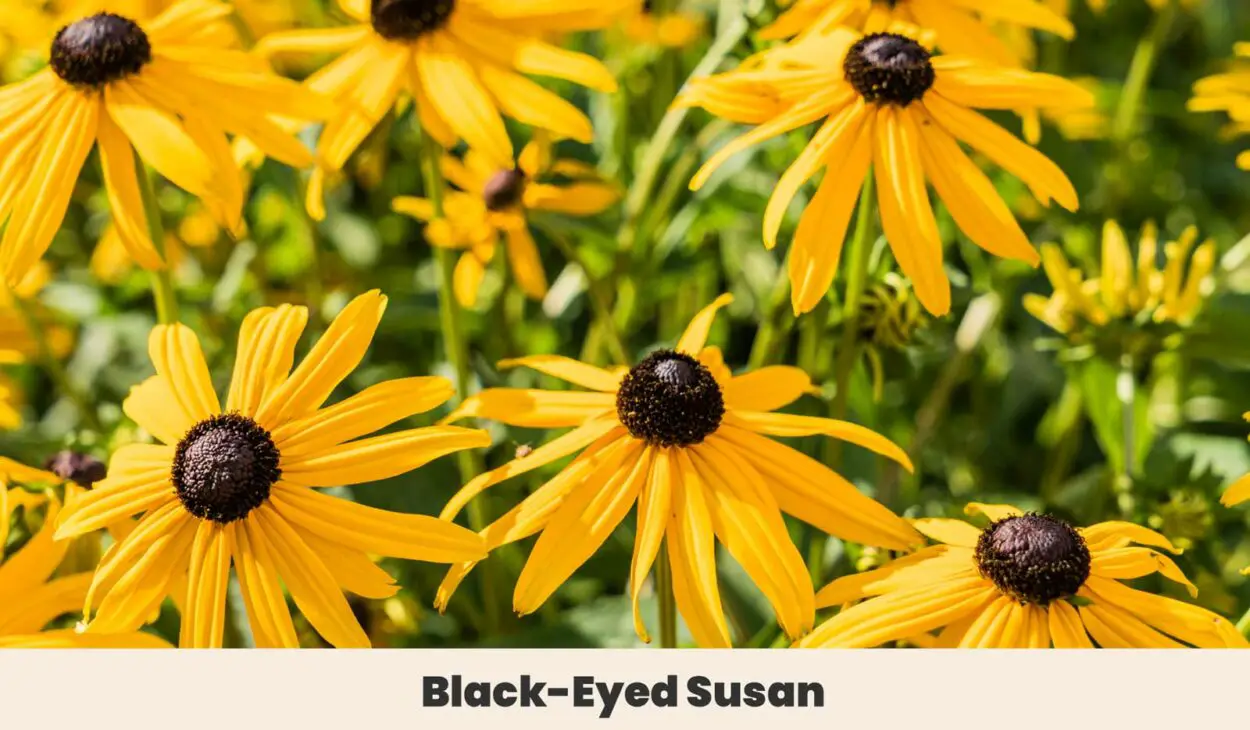
A darling with a dark heart, the sweet black-eyed Susan is a radiant gold flower with a single layer of yellow petals and a dark brown or black center. It’s an American wildflower, great for drawing beneficial insects to your garden. It’s one of the easiest of the native wildflowers to grow, happily thriving in the care of even the most forgetful of gardeners.
| Botanical Name: | Rudbeckia hirta |
| Growth Rate: | Rapid |
| Native Range: | Eastern United States |
| Hardiness Zones: | 3a to 8b |
| Soil Needs: | Tolerates most soil types |
| Exposure: | Full sun to partial shade |
| Blooming Period: | Spring to summer |
| Water needs: | Low to moderate |
11. Blanket Flower (Gaillardia Aristata)
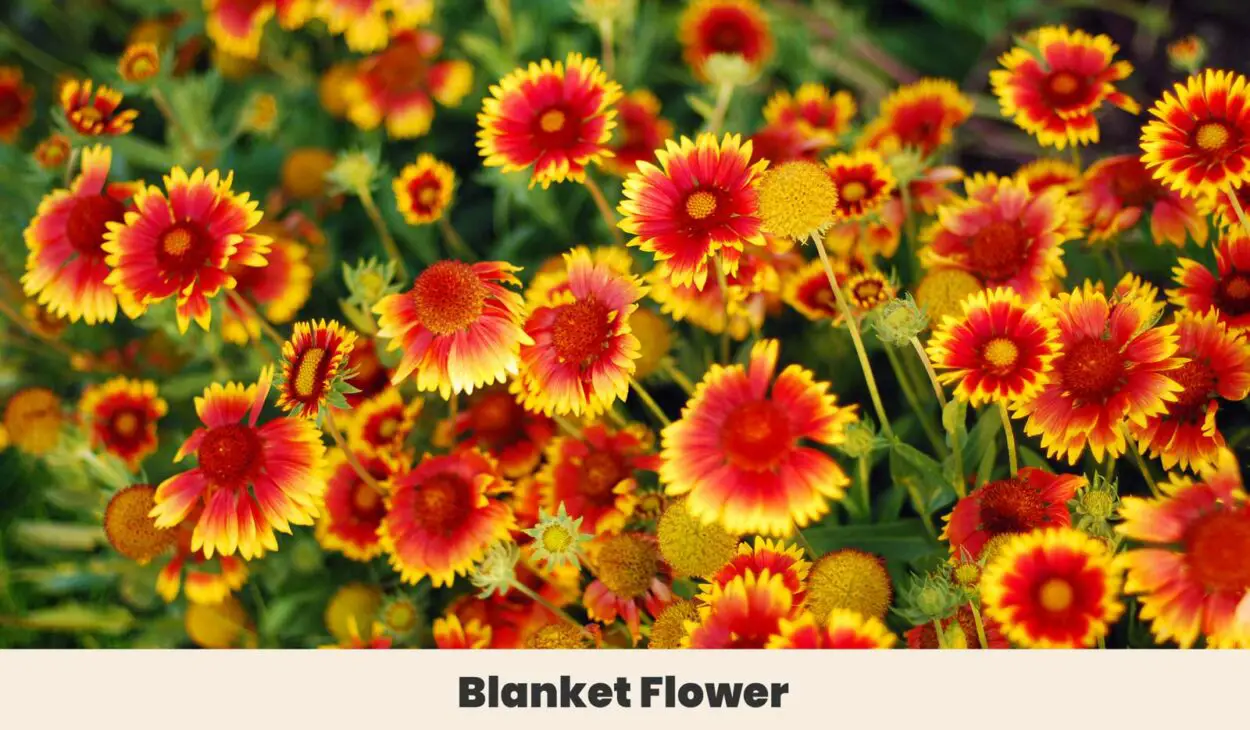
Also known as brown-eyed susan, the blanket flower is another startlingly bright wildflower, this time with vibrant yellow-tipped vermilion flowers and a deep, chocolate-brown center. I’ve always been so drawn to the blanket flower, the vibrant petals really stand out in a sea of green.
They resemble tiny sunflowers and love the same sort of bright sunlight and open aspect. They’re a prairie darling, a free-and-easy bloom that will thrive in any soil and almost any level of care. They don’t ask for much but reward abundantly.
| Botanical Name: | Gaillardia Aristata |
| Growth Rate: | Moderate |
| Native Range: | Western United States |
| Hardiness Zones: | 3 to 8 |
| Soil Needs: | Organically rich soil with good drainage |
| Exposure: | Full sun |
| Blooming Period: | Spring to late summer. |
| Water needs: | Low |
Final thoughts
Bathe in the beautiful backdrop of a backyard brimming with blooms. Behold its bounty and brightness, the business of bees and the ballet of butterflies. It’s breathtaking to believe just how basic the business of bedding bulbs and blooming beauties truly is. It’s no bother or burden. The business is beneficial and a blessing to behold.
